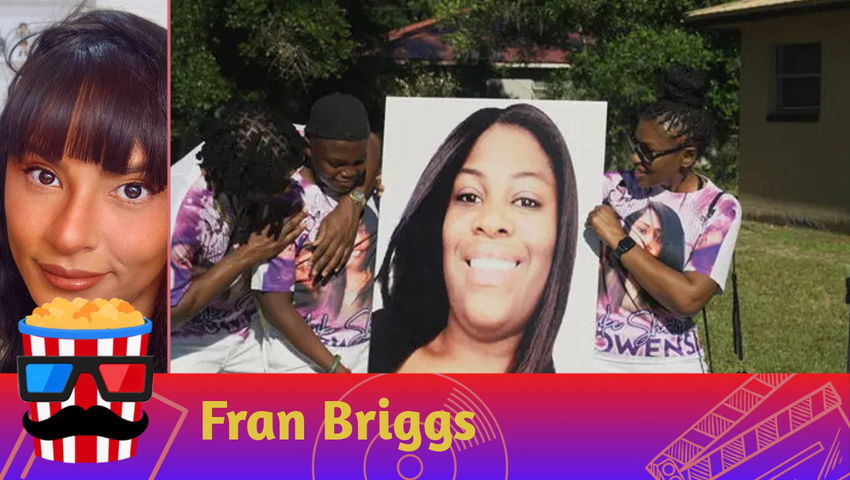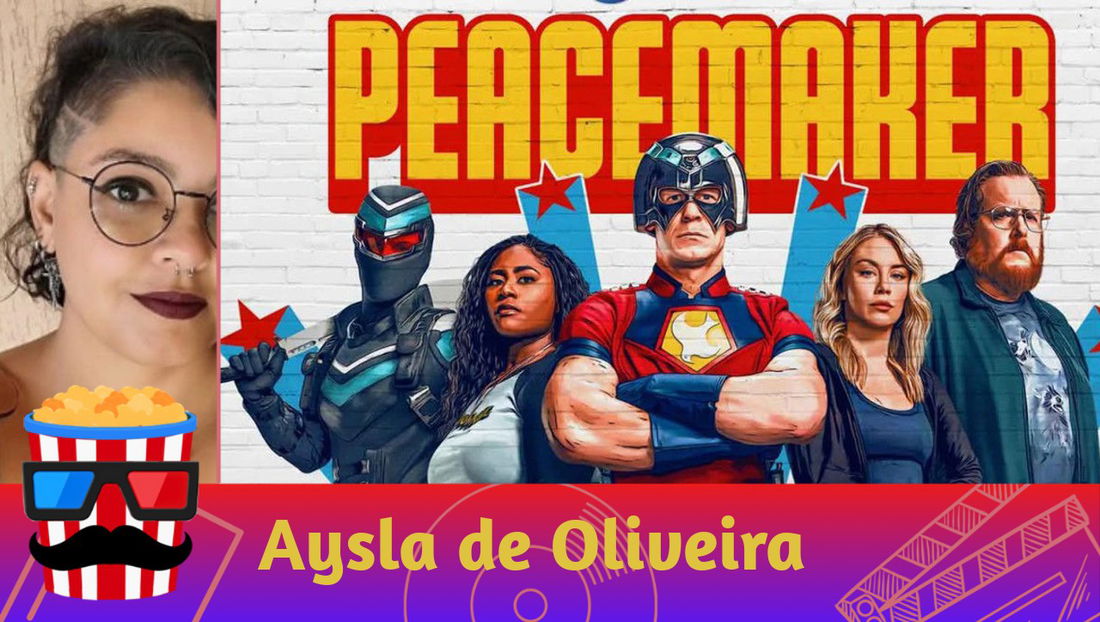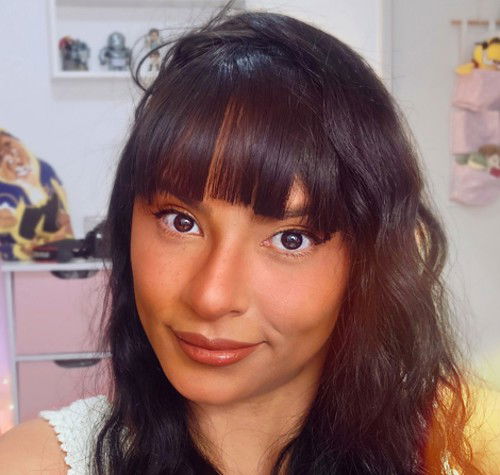Production and Final Work

Directed by Emmy winner Geeta Gandbhir, The Perfect Neighbor premiered on Netflix in 2025. It is a collection of real body cam footage from police officers, 911 calls, and security footage. This aesthetic choice was intentional: it avoided dramatic reconstructions and sentimental cuts. The horror is all real, unfiltered.
The New Yorker highlighted how this documentary is a "microcosm of a violent America", a disturbing picture of how suburban neighborhoods can become a battlefield where race, fear, and power collide. Meanwhile, The Guardian noted the director didn't go for sensationalism and instead preferred to paint a picture "where true terror is the system that makes the crime possible". Variety praised the overall composition and the attention to the police officers's and the witnesses's body language and interpreted the work as a study on how racial domestic violence is normalized.
So, The Perfect Neighbor doesn't only tell the audience what happened but uncovers why it happened, and what does that say about America. Namely, why we let it happen.

The case itself covers the sad fate of Ajike Owens, known in the neighborhood as "AJ". She was a hard-working, dedicated mother who was quite involved in the community. On the other side of the street lived Susan Lorincz, a middle-aged white woman who constantly complained about the neighborhood children, particularly Ajike's children, who often played next to her house. Susan didn't actually own the vacant lot next door, and its real owner gave the children permission to play there.

For months, Lorincz called the police to complain about "loud noises", "invasion of property", and "disturbances". In at least one of these occasions, according to official reports and statements, she would throw objects, including a pair of rollerblades, at the children and threaten them with an umbrella.
On the evening of June 2nd, 2023, after another aggressive outburst from Susan, Ajike decided to go to her house and ask her why she took a tablet from her son. Witnesses state she knocked on Susan's door and called her in a firm but not violent tone.
From the other side of the locked door, Susan shot at her, allegedly because she felt threatened and believed Ajike was trying to break into her home. The shot went through the door and hit Owens in the chest. She received care but ended up dying on the way to the hospital. The entire scene was witnessed by her son and was a perfect way to sum up the drama lived by all of American society: an unarmed Black woman was shot point-blank by a white neighbor who claimed to feel "threatened".
It also made clear how flawed Stand Your Ground laws are.
Stand Your Ground Laws - The Right to Kill
The right to self-defense is one of the cornerstones of modern society. However, the way that right is interpreted reveals a lot about a country's power structures and what makes people scared. In the United States, Stand Your Ground laws made the lines between the right to self-defense and permission to kill quite blurry.
Stand Your Ground laws first came up in a political context marked by speeches on self-defense and the right to own firearms. Florida was the first state to adopt a form of it and inspired over thirty other states to do the same.

Initially passed in 2005, this law amplified the right to self-defense by claiming any person "has the right to stand their ground" and use force, including lethal force, if they believe their lives are at risk. Furthermore, this law grants legal immunity to those who act on those beliefs, protecting them from criminal and civil suits.
But, in practice, what seemed like more power to the people turned into a reflection of racial inequality in America. This interpretation of the law is dangerous because it transfers to the individual the duty to interpret the threat (if there is one at all), removing the state from the equation entirely. And in a society where Black people are associated with violence by default, how dangerous you are considered to be depends on the color of your skin.
This fear, which has always been subjective, gained the protection of the law, and as it was fed by centuries of structural racism, the result is predictable: Black people are considered threats.

Research conducted by the Urban Institute and Tampa Bay Times reveals that Stand Your Ground laws reflect alarming racial bias patterns. Studies indicate that, when the defendant is white and the victim is Black, deaths are considered "justified" ten times more than when the roles are switched.
Cases involving white victims and Black defendants are more likely to yield a guilty verdict, even if the circumstances are similar to other cases where the roles are reversed. In trials where the defendant is Black and claims Stand Your Ground laws, the "reasonable fear" defense isn't accepted as much as the other way around.
These numbers reflect inequality and expose racism as the factor that defines who has the right to be scared and who is seen as a threat.
One Example
In February 2012, Trayvon Martin, a young Black man (only 17 at the time), was on his way home in Sanford, Florida, when he was followed and killed by George Zimmerman, who was part of the neighborhood watch at the time. Zimmerman claimed to have acted in self-defense and invoked Stand Your Ground laws.

Though Trayvon was unarmed and didn't represent any real threat, he was described by Zimmerman and by the media afterward as "suspicious". The jury accepted the defense's argument and absolved Zimmerman. This case presented us with a deplorable question: who gets the right to be scared?
Through a racist lens, Black people don't need to be violent to be seen as a threat. Their presence alone already makes the other person instinctively defensive, and Stand Your Ground laws protect this fear.
The Law as a Mirror
Stand Your Ground laws come from the idea of "justifiable fear", but the reason behind that fear, in a racially unequal society, is motivated by historical bias. What is "reasonable" to a mostly white jury? What is a "threat" when the image of the defendant is already tainted because of their race?
The North American criminal law scholar Paul Butler (Georgetown University) points out that this law "promotes racism" because it turns subjective perceptions of danger, socially taught and racially charged, into legal excuses. As such, the criminal system reflects and officializes inequality, as it gives white people the right to react with violence and denies Black people the right to exist without being seen as threats.

Furthermore, statistical data points out that homicide rates increased significantly in Florida after this law passed, not because of high criminality rates but because more deaths were considered "justified" because of this law.

This way, Stand Your Ground laws reveal what happens when fear is turned into a legal defense in a society marked by racial hierarchy. This law won't protect everyone the same way: it only protects those who the system already protects.
AJ's Case
When the police started investigating AJ's murder, they found out Lorincz was warned she was being hostile and that the other neighbors had already told the police about her aggressive behavior. Still, she was only arrested five days after the murder.
The fact it took five days inspired people all over Florida to protest and hold wakes for AJ. In fact, activists and law scholars denounced what they called a "white pause", that is, an institutional hesitation that frequently protects white attackers until public opinion puts pressure on officials to take action. To many scholars, this case was only followed up in court because AJ's murder echoed throughout the entire country, also pushed forward by the still recent memory of Trayvon Martin's murder.

When Susan Lorincz was finally accused in court, in August 2024, her jury only included white people. The defense claimed self-defense and invoked Stand Your Ground laws, arguing that the defendant believed herself to be in imminent danger. The jury, however, rejected the theory and considered her guilty of manslaughter. In November of that same year, she was sentenced to 25 years in jail.
After the verdict, authorities still took a long time to process her case and initially hesitated to execute her preemptive arrest, which left a scar the documentary isn't afraid to show: structural racism manifests itself in this type of crime and the lack of action from state officials that follows.
The Law is Flawed
The Perfect Neighbor doesn't only cover one individual tragedy. It also comments on how flawed Stand Your Ground laws are. In theory, they should only cover acts done in self-defense, but, in practice, it is an ambiguous license to kill. It lets personal, subjective beliefs dictate how dangerous someone really is. The problem is that those beliefs, in a society riddled with racism, are far from fair.
Lorincz stated she "feared for her own life" when she heard Ajike knock on her door, but investigation showed the door was locked and AJ never attempted to break in. The supposed "threat" only existed in Lorincz's head, but that "fear for her life" could be excused by Stand Your Ground laws.

Stand Your Ground laws, by allowing fear to be enough to absolve someone, turn emotion into a legal excuse. The documentary points out that this emotion transforms depending on your race, as "white fear" is seen as rational, but "Black fear" is seen as irrational or dangerous. The same gesture, such as raising your voice or knocking on a door, takes on different meanings depending on who is doing it and who is interpreting it.
The documentary also turned the neighborhood, Ocala, into a symbol. Though apparently peaceful, it eventually became a perfect example of modern segregation. It pointed out how tensions between white and Black families get worse with time, fed by a history of suspicions, small offenses, and complaints.
Each call Lorincz made to the police to complain about noise, movement, and children screaming while playing forms an informal record that makes her "fear" legal in court. Each time police failed to act is proof of how much they abandoned that Black community. When Susan shot AJ, it was nothing more than the climax of years of institutional indifference.

This documentary also exposes how the state, by not mediating the conflicts between its citizens, turns domestic spaces into armed territories. The neighborhood, which should have been a place everyone could enjoy, became a battlefield.
Body cam footage from the police reveals more than just the crime scene: it shows the gap between public agents and Black victims and how protocol replaced actual care. AJ's body in front of Susan's door symbolizes the frontier between "the safe inside" and "the threatening outside".
The Perfect Neighbor is a disturbing mirror that shows American society its own inequality, destroys the illusion of "unbiased" Stand Your Ground laws, and shows that they don't protect everyone equally. Instead, they only give more privilege to groups of people who have benefited from inequality in the past. AJ Owens's death wasn't a neighborhood accident but the predictable result of a culture that teaches some to fear and others to be feared.

How long it took to arrest Lorincz, the initial tolerance the authorities showed, and the way this case was depicted in the local media reinforce the narrative that the American justice system ignores the color of its victims. Even after Lorincz is deemed guilty, the question remains: how many Ajike Owens will die until fear is no longer an excuse to kill?
At first glance, The Perfect Neighbor is a story about how problems with a neighbor led to a fatal crime, but, if you look closely, you'll see an entire country knocks on the door, while the other, locked behind that same door, answers with a gunshot.
Is It Worth a Watch?
Yes, most definitely. Not just because "it's good", but because it's necessary.
This documentary isn't entertaining. Far from it: it gives us context, proof, embarrassment, agony, and anger. And shows the gears of a system that, even when it tries to be fair, is corrupted by centuries of prejudice.

If you enjoy real documentaries, The Perfect Neighbor is a gem. It is also perfect if you are interested in true crime that doesn't follow the usual "dramatic" style and rather comments on society somehow.
What if you were on the other side of the door? Do you think the law would see you as someone defending yourself or as a threat?

Thank you for reading, and see you next time!












— Comentarios 0
, Reacciones 1
Se el primero en comentar